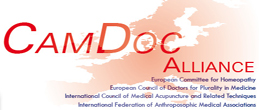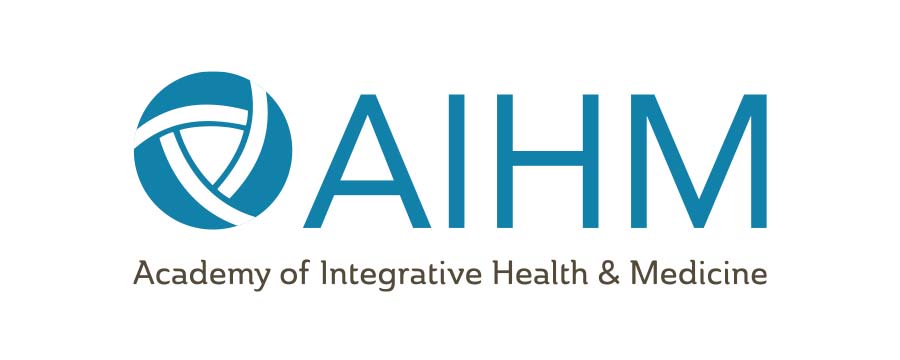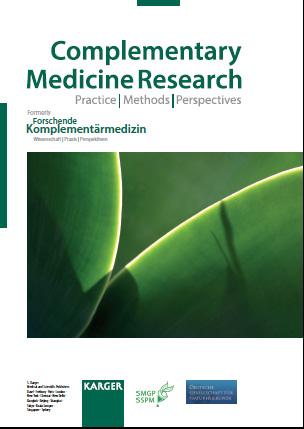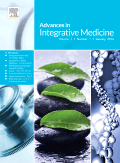CAM research in the European Union - The CAMbrella project
 There is evidence that up tp 80% of the citizens in the European Union are interested in Integrative medicine using methods of Complementary/Alternative medicine (CAM). For this reason it is mandatory for the legislation and regulatory authorities to provide the necessary legal and regulatory framework to provide access to methods of integrative medicine which prove to be safe and effective.This demand was expressed by the European Parliament in 2009. Research fundind was provided within the 7th EU Research Framework FP7. Out of this demand the research consortium "CAMbrella" was inaugurated, funded with 1.49 Million Euro.
There is evidence that up tp 80% of the citizens in the European Union are interested in Integrative medicine using methods of Complementary/Alternative medicine (CAM). For this reason it is mandatory for the legislation and regulatory authorities to provide the necessary legal and regulatory framework to provide access to methods of integrative medicine which prove to be safe and effective.This demand was expressed by the European Parliament in 2009. Research fundind was provided within the 7th EU Research Framework FP7. Out of this demand the research consortium "CAMbrella" was inaugurated, funded with 1.49 Million Euro.
The consortium was built by researchers from 16 universities from 12 EU member and associated states. The goal of this collaboration was to develop a roadmap for future European research in CAM that is appropriate for the health care needs of EU citizens, and acceptable to the EU parliament as well as their national research funders and healthcare providers.
The objective was furthermore to enable meaningful reliable comparative research and communication within Europe and create a sustainable structure and policy. CAMbrella was focussed on academic research groups which do not advocate specific treatments. The specific objectives were:
---to develop an EU network involving centres of research excellence for collaborative research
---to develop consensus-based terminology widely accepted in Europe to describe CAM interventions
---to create a knowledge base that facilities our understanding of patient demand for CAM and its prevalence
---to review the current legal status and policies governing CAM provision in the EU and
---to explore the needs, beliefs and attitudes of the EU citizens with respect to CAM.
Based on this information a roadmap was created that can enable a sustainable and prioritised EU research roadmap for CAM. To facilitate this coordinating action the project was delivered in 8 independent but interrelated work packages whose members met regularly. It was coordinated by a Management Board and directed by a Scientific Steering Committee with support of an Advisory Board. The outcomes generated were disseminated through the CAMbrella-website, peer review publications and a final conference with emphasis on current and future EU policies.
The Advisory Board represented the main CAM stakeholders including consumers, practitioners, clinical providers, and manufacturers of CAM medicinal products.
The results of the project were presented to the public at a Final Conference in Brussels on 29.11.2012. A day before the key findings were presented at a workshop in the EU-Parliament.
CAMbrella: Results and reports
Workshop EU-Parliament: 28.11.2018
Final Conference 29.11.2012: Program and presentations
Final Conference 29.11.2012: Publications

CAMbrella Workshop in the EU Parliament on 28 November 2012
Five Statements Advisory Board (pdf)
CAMbrella: Final conference on 29 November 2012
Program and List of Speakers (pdf)
Brinkhaus B: Roadmap for Future CAM Research (pdf)
Falkenberg T: International Development of TM/CAM research - What can Europe learn (pdf)
Fonnebo V: Legal Status and Regulations (pdf)
Johannessen H: Needs and Attitudes of Citizens (pdf)
Langbein K: Diagnosed Cancer: The Needs for Orientation and Personal Care. A patient´s View (pdf)
Lewith G: CAM use and Prevalence (pdf)
Uehleke B: Terminology and Definitions of CAM Methods (pdf)
von Ammon K: CAM use - the Poviders´Perspective (pdf)
Weidenhammer W: 3 Years CAMbrella in Retrospect (pdf)
Weidenhammer W: Closing Remarks (pdf)
Zimmermann P: CAMbrella Roadmap - The Advisory Board´s View (pdf)
CAMbrella: Final Conference: Publications
CAMbrella Press Release November 29, 2012 (pdf)
European Policy Brief: The Roadmap for European CAM Research (pdf)












